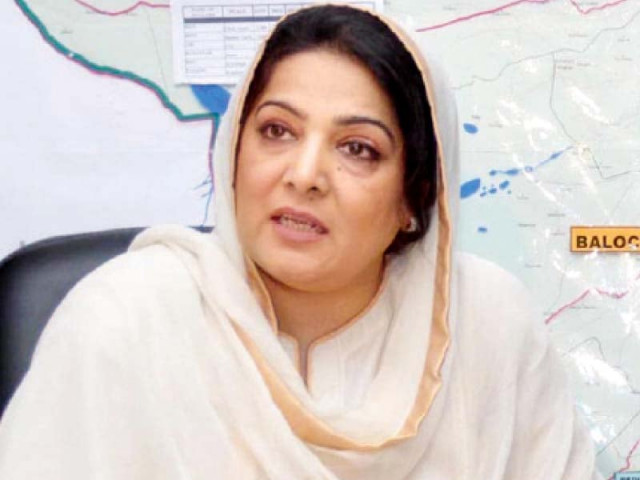For Pakistani women, politics still in masculine grip
Not just shameful underrepresentation but startling stagnancy of pace at which women get into political sphere

Minister of State for IT Anusha Rehman . PHOTO: FILE
At home in Pakistan, the number of serving women senators remains 19. Likewise, female presence in the National Assembly, too, stands at 70 - a statistic made even bitter by the fact that 60 women hold these seats courtesy to a constitutional mandate of reservation for women, at the cost of equality of opportunity. The ministries are no different. Of serving Ministers of State, only two – Anusha Rahman Ahmad Khan for Information Technology and Communication, and Saira Afzal Tarar for National Health Service Regulation and Coordination – are women. Together, all of this makes not just for shameful underrepresentation of over half the population, but startling stagnancy in regards to the pace at which women are making for themselves, or being given, room in the political sphere.
Women's place in politics
Looking at the state of things, it is almost as if we are telling women that though they may have won their right to choose their lawmakers, they may not intervene in law-making themselves. What remains most alarming and concerning despite is not the overall insufficient presence and participation of an entire gender in the running of government, but rather the slow speed of change in this arena. Whereas on one hand women’s movements, activism and awareness have led to appreciable tips towards gender balance in the workforce and education sector, the ratio of women in politics has strangely stayed consistently low. Holding not just true for Pakistan, as well as most developed nations, it seems to speak for how the struggle for women’s rights is so far succeeding only at lower levels, structurally speaking, with the top rungs of authority still remaining in unchallenged masculine grip.
Instead of undermining this as we culturally do, we must realise that the repercussions of this unequal representation are wide. By default, less women being present in the senate leads to fewer bills and legislations that enhance the quality of the lives of women, such as those concerning childcare and custody, child support and welfare, divorce, rape and domestic abuse, female literacy, birth control, hygiene and childbirth. On top of that, the same problem means that when potential public policies concerning women’s issues are framed, their conditions and decisions ultimately rest on males, resultantly producing outcomes that are both indifferent and inadequate. Resultantly, this takes away women’s agency to regulate their lives and monitor over their rights. What comes about eventually is a society that denies female self-consciousness, identification, and relevance by refusing to acknowledge them organizationally.
Administration, politics: Women still underrepresented
What it comes down to, then, is the necessity to first, resist tempting complacency in the face of quotas that are disproportionate to the populace they are allotted to, and secondly, to persist against women’s marginalisation politically, in order to reach a place women’s problems are addressed politically in a conversation that is inclusive of women themselves.
Arfa Ezazi is an English Literature major and co-editor of the bilingual literary magazine, Zau.



















COMMENTS
Comments are moderated and generally will be posted if they are on-topic and not abusive.
For more information, please see our Comments FAQ